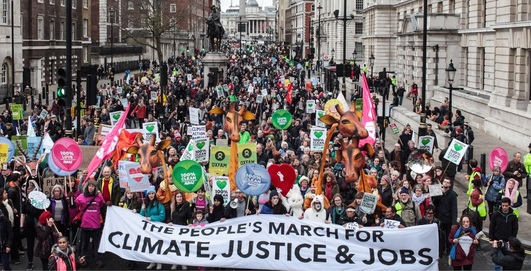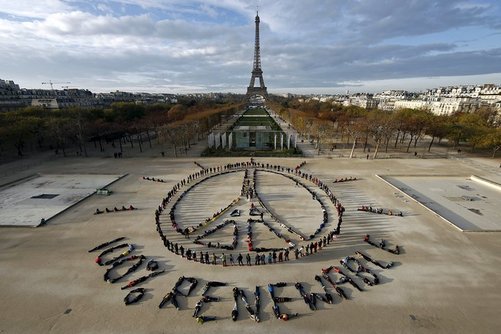|
I was thrilled last week by the UNFCCC publishing an overview schedule of the two-week conference. As a young person attending an international conference for the first time, I have a limited idea of what to expect the week I observe conference proceedings. Scrolling the schedule, each day is assigned a vague but exciting theme: “EarthInfo Day,” “Farmers’ Day,” “Young and Future Generations Day,” “BINGO Day” (Business and Industry Day), “Education Day,” “Gender Day,” “Africa Day,” and “Climate Justice Day.” Then sprinkled throughout the two weeks are numerous events, side events, plenary meetings, workshops, dialogues, lunch breaks, showcases, sharings of views, and technical briefings. While the schedule seems rather daunting as I am not entirely sure what to expect on a day-to-day basis at COP 22, it’s important to break things down and understand the key issues that will come up. Climatenexus, a “strategic communications group dedicated to highlighting the wide-ranging impacts of climate change and clean energy solutions in the United States,” identifies seven key issues.
While a general grasp of these issues is only the beginning, I invite you to read more into these as our group of student representatives does the same in preparation for attending and making the most of our time at COP 22 in Marrakech this November! Sources: Marrakech Climate Change Conference Overview Schedule: http://unfccc.int/files/meetings/marrakech_nov_2016/application/pdf/overview_schedule_marrakech.pdf UNFCCC Provisional agenda and annotations for COP 22: http://unfccc.int/resource/docs/2016/cop22/eng/01.pdf Climatenexus summary of key issues: http://climatenexus.org/about-us/road-through-paris/negotiation-issues
8 Comments
Gabrielle C.
15/11/2016 05:45:50 pm
These all seem like very important topics that should be discussed at COP 22. I'm curious as to what kind of long term goals will be discussed. What is the possibility that an international goal like this could be created and how would they make sure everyone follows it?
Reply
Alice Henderson
23/11/2016 08:25:10 pm
While most of the high level negotiations have not yet moved towards long-term goals, there are certainly a number of long term goals discussed at the side events of COP 22. Many activists are concerned with coal power and fossil fuels, a long term goal being a complete stop of fossil fuel usage, for example. Other social justice workers are concerned that initiatives to cut emission of green house gases don't negatively impact indigenous populations or women, which they do in some cases.
Reply
G.F. (from Mrs. Foy's period 3 class)
16/11/2016 07:14:15 am
What do you believe is the best way to receive renewable energy (such as solar powered energy, wind powered energy, etc)?
Reply
Alice Henderson
23/11/2016 08:15:47 pm
From my understanding, it will ultimately take a number of different renewable sources to meet the growing global demand for cheap energy. Different parts of the world have different resources available so some energy sources won't be as effective everywhere. For example, I live in Washington State where nearly all our energy is from hydropower since we have lots of rivers and dams. This clearly wouldn't work in a more arid state such as Arizona or New Mexico.
Reply
Asa W.
16/11/2016 07:20:25 am
What environmental issue does the UN view as causing the most impact for following years and generations?
Reply
Alice Henderson
23/11/2016 08:11:32 pm
This is a pretty big question, but much of the UNFCCC negotiations at COP 22 are focused on cutting carbon emissions. While there are many many issues affecting the environment today, the one government representatives are most concerned with right now is how to encourage industries and individuals to limit the emission of carbon dioxide and other greenhouse gases.
Reply
Alexi F.
21/11/2016 09:10:57 am
Have any countries signed unto ratchet mechanisms yet and do they mainly have to do with fines?
Reply
Alice Henderson
23/11/2016 08:06:26 pm
Part of the expectation of countries who sign onto Paris Agreement is that they have a plan to reassess and increase their targets every five years. A "ratchet mechanism" means that countries "ratchet up" or increase their targets to cut emissions on a regular basis. Over 190 countries, nearly all of the countries represented at COP 22, have now signed onto the agreement and are expected to asses and improve their targets every five years.
Reply
Leave a Reply. |
Categories
All
Archives
March 2024
|


 RSS Feed
RSS Feed
